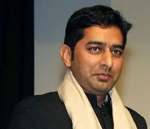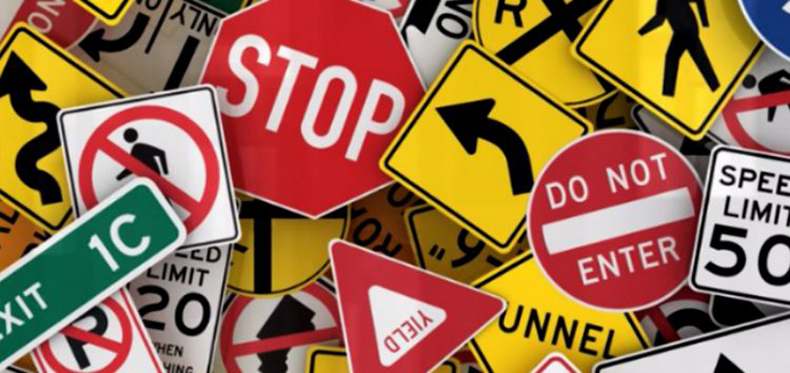
By Shahid Iqbal Choudhary
Every calendar year begins with widespread celebrations of Road Safety Week and ends with ever increasing number of accidents, deaths and injuries. The 28th Road Safety Week was no different given the huge loss of human lives suffered during the preceding year which becomes just a number. Nearly 2700 people died in road accidents during 28th Road Safety Week.
More than 400 people are killed every day in road accidents across the country, nearly the size of a Jumbo Jet crashing daily. National Crime Records Bureau statistics reveal 1.35 Lakh to 1.50 Lakh people killed every year in road accidents. However independent organisation put the number far more than 2 Lakh deaths. World Health Organisation report on Road Safety indicated 2.31 Lakh people killed in road accidents in India during 2013 against official data of 1.37 Lakh. In every 4 minutes there is one death in road accidents –which should be enough a wake-up call for everyone alive.
Expanding road network, improvement in road infrastructure, better urban planning, safety features in vehicles, mass awareness, stringent rules, effective policing, stricter punishments and so on have not arrested the trend of increasing number of deaths due to road accidents. More than 20 children aged below 14 years die in country every day due to road accidents.
Unplanned development, lopsided growth of urban centres, business establishments encroaching on common space, poor civic sense, weaker enforcement and many such factors have added to traffic woes increasing every day.
Jammu and Kashmir state has a population of 125 Lakhs as per census 2011 while projected population as on 01.01.2017 is 142 Lakhs out of which 84 Lakh population is above the age of 18 years. There are more than 17 Lakh vehicles in state which include nearly 15 Lakh registered with local transport offices and others belonging to security forces, businessmen, central government offices, inter-state commercial vehicles and contract carriages. At the same time nearly 65% population has access to public transport only. More than 45% geographical area of state lacks proper or sufficient transport system which includes mostly hilly areas of 9 districts while there is concentration of 76% private and 68% commercial vehicles in 16 major towns and interconnecting routes which reflects higher affordability in these areas and also profit-making commercial business while there are thousands of villages in transport shadow area.
There is a contrast between traffic problems of rural and urban areas as well as hills and plains. In Cities unregulated traffic, lack of civic sense, weaker enforcement, large scale encroachments and number of vehicles beyond carrying capacity are reasons leading to road worries including accidents. Unplanned locations of vital public infrastructure like bus-stands, hospitals, schools, offices etc add to it. In rural areas shortage of commercial vehicles is a major reason for over-loading and accidental deaths. Public transport both in Government and Private sector has not come up well in these areas. The transporters often resort to playing with the scarcity on routes.
encroachments and number of vehicles beyond carrying capacity are reasons leading to road worries including accidents. Unplanned locations of vital public infrastructure like bus-stands, hospitals, schools, offices etc add to it. In rural areas shortage of commercial vehicles is a major reason for over-loading and accidental deaths. Public transport both in Government and Private sector has not come up well in these areas. The transporters often resort to playing with the scarcity on routes.
Corruption in any system is also a part reflection of corruption in society and nothing reflects it better than our roads which witness unruly traffic movement and a near universal temptation for observing the rules in breach, with morality indeed at crossroads. The moment we debate about traffic issues everyone comes up the blame on traffic police. The traffic police may not be able to deliver to its full potential but it’s unrealistic and unjust to imagine a force of nearly 2000-3000 personnel regulating more than 17 Lakh vehicles and manning more than 25000KM vital roads. Cities represent the maximum deaths due to road accidents which is reflective of rash and negligent driving, overcrowding of vehicles and faulty regulation apart from other factors.
In J&K state there have been 21700 road accidents across state in last 4 years which lead to 3791 deaths and left more than 33460 injured. Surprisingly, Jammu city alone accounted for more than 561 deaths which is 15% of state and 28% of deaths reported across Jammu province. In 2016 , despite prolonged shutdown, 707 road accidents left 153 persons dead and 1135 injured. Jammu recorded nearly double loss.
There is no dearth of Legislations, rules and judgments as well as executive orders regulating the traffic management even as we continue to call for more stringent and harsher laws. The action in road traffic violations is more of punitive in nature rather than preventive. The awareness on road safety though a token drive on various occasions contributes a lot in various ways but ultimately it is the community and society which has to rise to the occasion against this menace of massive deaths attributed to road accidents. Every single life matters but somewhere in the heart of hearts we have settled with the fact that loss of life in different circumstances is perhaps valued differently. A single death would generate mass outrage in one case and more than 1.50 Lakh killed annually would be remembered only in statistics. The roads and vehicles will continue to be upgraded for safety it is ultimately the collective conscience of the citizens which needs an awakening towards road safety which would not be achieved till everyone lives safe and makes it safe for others on roads.
rather than preventive. The awareness on road safety though a token drive on various occasions contributes a lot in various ways but ultimately it is the community and society which has to rise to the occasion against this menace of massive deaths attributed to road accidents. Every single life matters but somewhere in the heart of hearts we have settled with the fact that loss of life in different circumstances is perhaps valued differently. A single death would generate mass outrage in one case and more than 1.50 Lakh killed annually would be remembered only in statistics. The roads and vehicles will continue to be upgraded for safety it is ultimately the collective conscience of the citizens which needs an awakening towards road safety which would not be achieved till everyone lives safe and makes it safe for others on roads.
Country has stood to various challenges. There have been times when polio was reported in lakhs of children. Collective conscience of country, mass awareness, education, participations, incentives, drives, effective policies and concerted efforts made India polio-free in 2011 and it has been so since last 6 years. We were successful in protecting lakhs of lives annually and continue to do so. From Hyper-endemic India was transformed to polio-free by “the Nation” itself. Road safety calls for a national movement than sporadic celebrations for a week. It has to be a everyday task for the nation round the year.
Improving public transport, opting for mass transport, societal action against encroachments as add on for executive action, future planning, severe punitive action, prohibitory action, and a mass self-realisation on road safety are just a few measures which every citizen should strive for.
(Author is an IAS officer of J&K Cadre. Feedback: shahidiqbalc@gmail.com)




